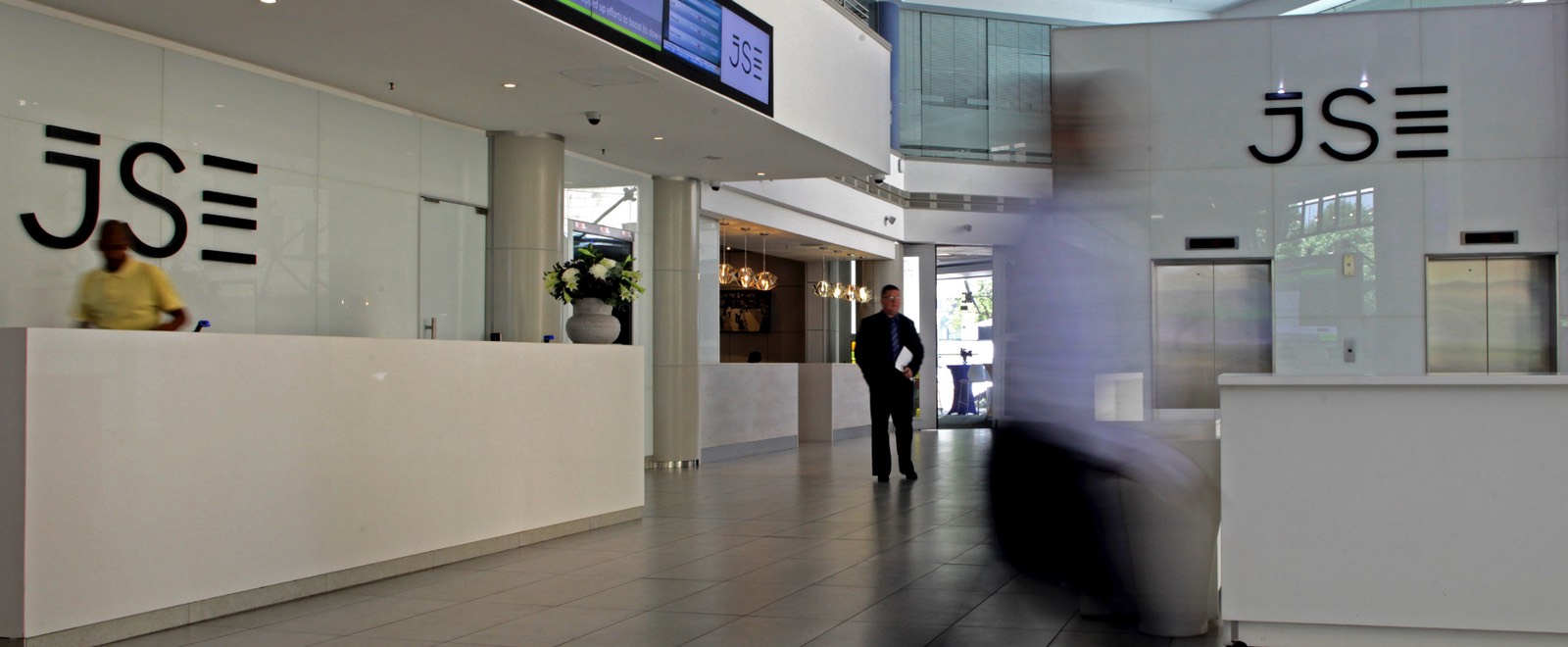How the JSE Is Empowering SMEs to Build SA’s Next Corporate Giants
Caption:
Inside of the JSE in Sandton, Johannesburg.
📷 MOEKETSI MOTICOE
The Johannesburg Stock Exchange (JSE) is giving small and medium-sized enterprises (SMEs) a fighting chance thanks to, two innovative initiatives launched two years ago: the JSE Enterprise Acceleration Programme (JEAP) and JSE Private Placements (JPP).
Founded in 1887 during SA’s first gold rush, the JSE is now helping to grow the next generation of corporate giants through these new platforms. The interventions are crucial, given that 50% of startups in SA fail within their first 24 months due to limited access to funding and founders’ inexperience.
Like in many other emerging markets, SA’s entrepreneurs face significant challenges in securing startup and expansion capital, as the local venture capital market remains small and traditional lenders are risk-averse. Banks require collateral and strong cash flow before approving loans, making it difficult for SMEs to obtain financing.
JEAP, launched in 2022, offers SMEs a comprehensive ecosystem of advisers, mentors and networks designed to help them enhance their competitiveness, raise capital and access new markets. Since its inception, JEAP has supported more than 60 companies, which have seen their annual revenues grow at an average rate of between 22% and 108%.
Meanwhile, JPP has facilitated 44 funding deals, valued at more than R12bn, as of March this year. This digital marketplace connects SMEs and unlisted companies with private debt and equity capital, offering a valuable alternative to traditional funding sources. JPP's investors currently hold more than R22bn in capital, ready to be deployed into high-growth ventures. Sam Mokorosi, the JSE’s Head of Origination and Deals, notes that JPP investors are sector-agnostic but tend to focus on investments that prioritise sustainability, job creation and transformation. “We’ve also seen increased demand for funding structures like purchase order (PO) financing and invoice discounting,” says Mokorosi.
Both PO financing and invoice discounting are popular in SA because they help SMEs overcome cash flow constraints, allowing them to meet obligations on contracts and tenders. PO financing assists businesses in fulfilling customer orders when they lack the funds to supply goods, while invoice discounting enables SMEs to borrow against unpaid invoices.
One success story is Pace Car Rental, which raised capital through JPP and has since doubled in size, creating more than 100 jobs in the past 18 months. Grenville Salmon, Managing Director of Pace, advises that raising funding isn’t just about having a great idea. “You need to sell an investment opportunity. The safer you make the investment, the lower the return investors will expect,” he says.
Cleola Kunene, JSE’s Head of SME Development, is pleased with JEAP’s progress. “We expanded into sectors like junior mining and manufacturing, and have placed a strong emphasis on supporting women-led businesses,” says Kunene. Since its launch, JEAP has worked with a third cohort of high-growth companies, some of which have begun to expand beyond SA’s borders.
JEAP and JPP are building on the JSE’s Alternative Exchange (AltX), which was established in 2003 to provide SMEs with access to capital. These new initiatives come at a time when the JSE is seeking to counter a wave of de-listings that have plagued the bourse in recent years. However, efforts to attract new listings have begun to bear fruit. This year alone, the JSE has welcomed new entrants such as vehicle retail group WeBuyCars, technology firm Powerfleet, poultry giant Rainbow Chicken, and medical cannabis company Cilo Cybin, which listed on AltX.
With investor confidence on the rise following this year’s general elections, the JSE appears well-positioned to foster more listings and continue its support for high- potential SMEs.


